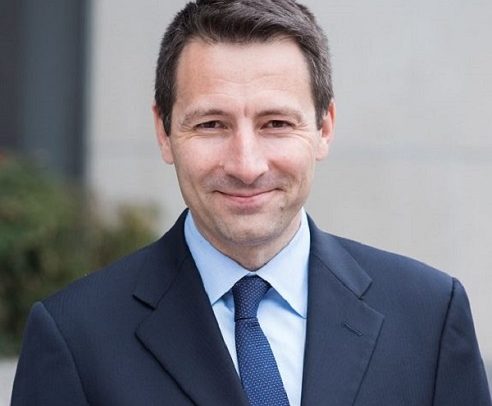Stéphane Roudet
The International Monetary Fund (IMF) has approved a $3 billion bailout for Ghana, and according to the IMF Mission Chief for Ghana, Stéphane Roudet, this will bring about significant reforms in the energy and cocoa sectors.
Roudet stated that the programme will lead to increased private sector investment and the building of international reserves.
He emphasized that the reforms in the energy and cocoa sectors will be particularly crucial for Ghana’s economy.
The energy sector in Ghana has been facing significant challenges, including high debt levels and unreliable power supply.
The bailout is expected to address these issues by supporting the government’s efforts to improve the sector’s efficiency and sustainability.
Similarly, the cocoa sector in Ghana, which is the world’s second-largest cocoa producer, has been grappling with low productivity and inadequate infrastructure. The IMF bailout is aimed at supporting reforms that will help increase the sector’s productivity and competitiveness.
Roudet also noted that the reforms will focus on encouraging private sector investments, which will play a key role in driving economic growth and job creation in Ghana.
“There will be reforms in the energy and cocoa sectors,” he said during a joint Ghana -IMF press conference in Washington on Thursday, May 18, 2023.
“It will be restoring macroeconomic stability, for higher and more inclusive growth. It has reforms that will make the economy more resilient and likely to withstand shocks in the future,” he added.
For his part, Finance Minister Ken Ofori-Atta thanked the Fund for the support.
He said “We are already seeing relative stability in the currency and inflation and revitalizing our economy. Government with support from the IMF and collective effort with Ghanaians will work through our current challenges and emerge stronger.”
The Board of the Fund unanimously approved Ghana’s bailout on Wednesday, May 17 at a meeting in Washington after Ghana secured the Paris Club financing assurance on Friday, May 12, 2023.
The IMF’s decision to provide the bailout to Ghana has been welcomed by the government, which has been facing significant economic challenges due to the COVID-19 pandemic and other factors.
The bailout is expected to provide much-needed support to Ghana’s economy and help it recover from the impact of the pandemic.
Overall, the IMF’s support for Ghana is seen as a positive development that will help the country address key economic challenges and promote sustainable growth.
The success of the programme, however, will depend on the government’s ability to implement the necessary reforms effectively.
A press statement issued by the Paris Club on Friday, May 12 said “The creditor committee stresses that the Ghanaian authorities are expected to seek from all private creditors and other official bilateral creditors debt treatments on terms at least as favorable as those being considered by the creditor committee, in line with the comparability of treatment principle.
Consequently, it added “the creditor committee urges private creditors and other official bilateral creditors to commit without delay to negotiate with Ghana such debt treatments that are crucial to ensure the full effectiveness of the debt treatment for Ghana under the Common Framework.”
Also, a creditor committee for Ghana has been formed by countries with eligible claims to see to the quick implementation of the resolution. The creditor committee is expected to be co-chaired by China and France.
“The creditor committee examined the macroeconomic and financial situation of Ghana, including its long-term debt sustainability, and its formal request for a debt treatment under the “Common Framework for Debt Treatments beyond the DSSI” endorsed under the Saudi G20 Presidency in November 2020, which was also endorsed by the Paris Club.”
“The creditor committee supports Ghana’s envisaged IMF upper credit tranche (UCT) program and its swift adoption by the IMF Executive Board to address Ghana’s urgent financing needs.
“The creditor committee encourages Multilateral Development Banks (MDBs) to maximize their support for Ghana to meet its long-term financial needs,” the statement added.
By Vincent Kubi


